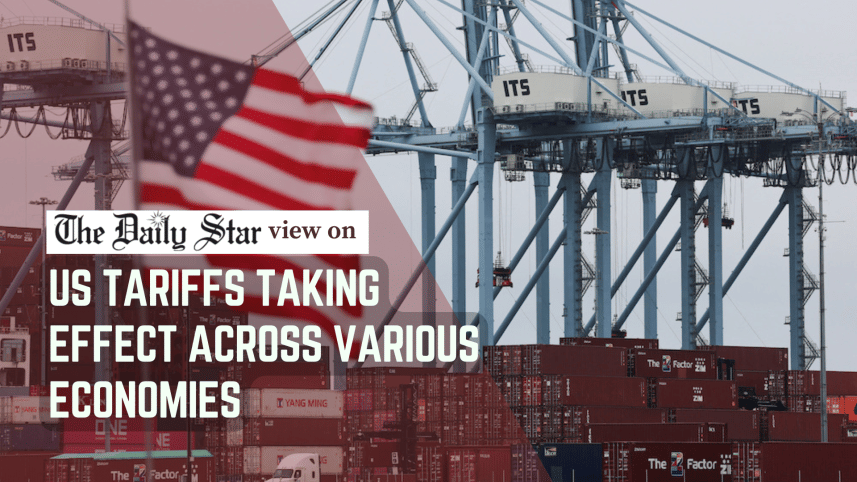Bangladesh must tread carefully as new tariffs kick in

A new and more perilous chapter in global trade has begun. With the imposition of a 20 percent tariff by the United States, the total duty levied on Bangladesh's vital garment sector now climbs to a punishing 36.5 percent. Our largest export market has suddenly become a far more expensive arena. This is not an isolated squall but part of a much larger storm. The immediate impact is as sharp as it is severe. Exporters face intense pressure from US buyers to absorb the new costs within their already razor-thin profit margins. The very competitiveness of our ready-made garments is at stake.
Yet this moment of crisis is also a test of the nation's resilience and an opportunity for the manufacturing sector to reaffirm its strength. The government and industry leaders believe Bangladesh can weather this, leveraging a hard-won reputation for bulk and timely delivery. The path forward, however, cannot be one of passive hope. It demands a steady hand. The government must continue its diplomatic engagement with Washington, aiming for further negotiations to mitigate this tariff burden.
President Donald Trump's trade decisions pushed American import duties to their highest level in a century, as a new, more contentious era of trade rivalry is playing out. The increases were implemented despite frantic, last-minute lobbying by various countries desperate to escape the levies. In a punitive action against New Delhi's continued purchases of crude oil from Moscow, the US president has now hit India with an additional 25 percent tariff. This comes on top of an existing 25 percent duty imposed after the two nations failed to reach a trade deal before the August 1 deadline—bringing the total tariff on Indian goods to a staggering 50 percent. Whether this new tariff landscape will create a competitive opening for Dhaka remains to be seen.
For Bangladesh, a strategic pivot is essential. Manufacturers must aggressively pursue the diversification of export markets, as the vulnerability of over-reliance on a single trading partner has now been laid bare. This external push must be matched by internal fortification: we must strengthen the industry's backward linkages as an economic necessity. The government, in turn, must encourage and incentivise innovation. The goal must be to help manufacturers move relentlessly up the value chain, from basic apparel to more complex and higher-margin products. In this new global marketplace, it is also time to champion our commitment to sustainable and ethical manufacturing.
The winds of global trade have shifted, perhaps irrevocably. Navigating this new landscape calls for Bangladesh to be both careful and strategic. Our future prosperity depends on it.



 For all latest news, follow The Daily Star's Google News channel.
For all latest news, follow The Daily Star's Google News channel. 
Comments